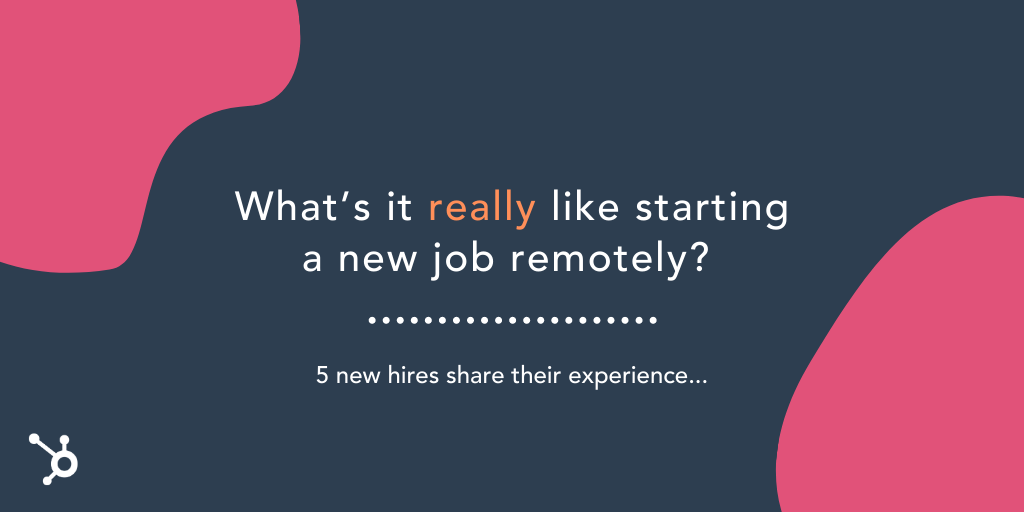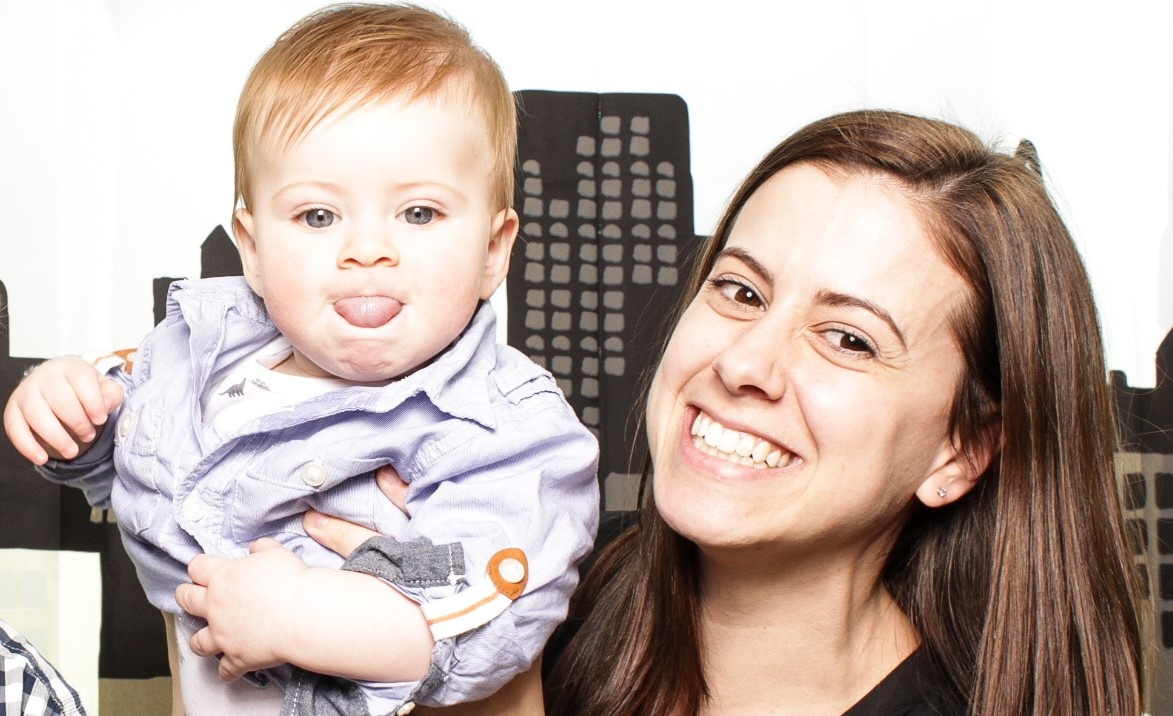
When I had my first interview with HubSpot, I’d been a proud Californian for exactly two weeks. I cringed as I emailed my recruiter, “I’m so excited for this opportunity, but I just moved -- and I can’t do it again.” His reply was swift and easy, “Oh, that’s no problem, we’re open to this position working remote.”Once I’d stopped popping bottles in disbelief over my good luck, the reality set in. Could I do it? Was I cut out for remote work? Would I feel cut off from the company and my role? HubSpot makes it look easy, but there are a lot of logistics, planning, and thoughtfulness that go into hiring a new remote worker or transitioning an existing HubSpotter to remote status. And then there are the tough personal questions you have to ask yourself. Not the least of which is, “Can I do my best work as a remote employee?”

Because this is such a sensitive topic, HubSpot Senior Recruiter Sara DeBrule and I (Meg Prater, writer on the HubSpot Sales Blog), decided to collaborate on this helpful list that tackles remote work from two points of view:
- A current employee deciding whether remote work is right for them.
- A manager hiring a remote employee or fielding a request for an in-person employee to go remote.
So, let’s get started.
Questions to Ask Yourself About Going Remote
I’ve talked to some colleagues who state emphatically, “I could never do remote work,” and others who treat it as a mystical land of plenty.
The fact is, it’s a tricky balance between both. Some days, I feel like no mere mortal can keep me from crossing every last item off my meticulously crafted to-do list. Other days, I’m lucky to cross five items off that list, feel like I haven’t communicated with an actual human in at least six light-years, and only remember how to speak dog.
To work remotely, it’s helpful to be structured, resilient, and, above all, forgiving. We all have our days. What matters (especially) in remote work is that you can pick yourself up and move forward productively.
Here are a few questions to ask yourself and your manager before considering a remote position.
Be honest about your habits, personality, and the nature of your work.
1. How are you motivated?
Are you self-motivated or does it take the buzz of an office and a cheerful smile from a coworker to get you going in the morning? There’s no wrong answer here, but it’s important to know you can draw from internal motivation to produce results and succeed in a remote environment.
2. How do you get energized during the work day?
Do you complete your best work by throwing ideas off colleagues or brainstorming at after work happy hours? That doesn’t mean you won’t thrive in remote work, but you should consider how these experiences will change outside the office. Will you feel the same lightning strike if you’re conducting that same brainstorm during an hour-long structured meeting or quarterly visit to the office? If not, consider whether this is the right move for you.
3. Think about your ideal day at the office.
Do you get in early, knock out a few tasks in relative silence, breeze through a few meetings, and grab lunch at your desk while checking off the rest of your to-do list? Or would that ideal day start with a coffee meeting, include lunch with your team, and end with a company trivia session and happy hour?
Again, neither answer means you can or can’t swing remote work, but the key here is maintaining a happy, healthy work life, and if you’re happiest and most inspired around colleagues and at company events, consider what you’re giving up if you go remote.
Questions for Interviewers/Managers to Ask Potential Remote Employees
When you’re interviewing a potential new hire for remote work, it’s important to learn how they’re motivated, how they structure their days/challenges, and where they draw energy from throughout the day. If you’re working with existing employees, it’s important to consider the request through a similar lens. Here are a few questions to ask both candidates:
Characteristics, habits, or traits you’re looking for in a remote hire.
1. How do they stay organized?
- “How do you organize yourself and/or your team around projects?”
- “How would you communicate about/manage projects from outside the office?”
- “Would you consider yourself assertive? If so, tell me about a time you exercised that assertiveness.”
- “How do you organize your day?”
- “How and where do you do your best work?”
2. Are they collaborative?
- “What’s your process for working with others?”
- “If someone asks you to start a project, what are your first steps?” (If they lean on in-person interactions like calling a meeting or swinging by someone’s desk, this could be a red flag, as opposed to someone who tends toward introspection to solve a problem or kick off a project.)
3. Are they a self-starter?
- “Tell me about a time you recognized something was broken in your business. What did you do?”
- “How do you overcome obstacles?”
- “How do you recognize difficult situations and identify solutions?”
4. Do they know what they’re signing up for?
- “What resources have you read to understand what a remote work experience would be like?” (Did they view remote companies on Glassdoor and read reviews? Do they follow certain remote work blogs? Have they talked to fellow remote employees?)
- “What is it about remote work that appeals to you?”
- “What are your concerns about remote work? What do you think will be the obstacles?”
Red flags to consider.
Note: These aren’t hard-and-fast rules. A red flag might not correlate to a person’s ability to succeed in a remote position. But these areas are worth digging into if initial answers are worrying.
- If their response to “How do you successfully collaborate” relies on in-person interaction (i.e., desk fly-bys, meetings, coffee breaks), ask why those are their preferred methods for discussing new projects and how they would handle these same situations outside the office.
- Ask, “What energizes you at work?” If the answer is, “Solving complex projects,” or “Finding a quiet spot in the office to churn through email,” you might have a good remote candidate on your hands. If their answer is, “Grabbing mid-morning coffee with colleagues,” or “the company's great team-building opportunities,” ask clarifying questions to understand how this person will find that energy outside of your organization's physical walls.
- Ask how this person likes to be managed. You’ll have a better pulse on this if your remote candidate already works for your company. Regardless, ask “As a remote employee, what are you looking for in a team and manager?” If the answers revolve around hands-on management and a close-knit team, these could be red flags. If, however, answers point toward independence and the ability to ask for help and community as needed, this could be a sign this person is a good fit for remote work.
Establish your company's remote work policies and expectations.
Whether you’re dealing with a new hire or a longtime employee, it’s likely they don’t know much about about your company's remote work policies, or the unique guidelines in place for each department and team. Set clear expectations for remote work during the interview or approval process. Here are a few ways to do that successfully:
- Establish how your company does and does not support remote workers
- Be honest about what stage the company and your team is in when it comes to remote work
- Connect them with other remote workers in similar roles
- Leverage current remote employees to interview late-stage remote candidates
- Identify how success will be measured
- Establish a routine for checking in with managers, colleagues, and mentors
- Define the path for career advancement as a remote employee. How will expectations and career growth change for current employees if they go remote?
These can be difficult questions to ask, but it’s important for both parties to understand whether their best work will be completed remotely.
The future of work is becoming more and more remote every day. Remote work isn't for everyone, but for some it's the way they work best. So, next time you're thinking about what working remotely might look like for you or your employee, think through these questions and topics to really decide if working away from the office is the right move for you.




.png)
